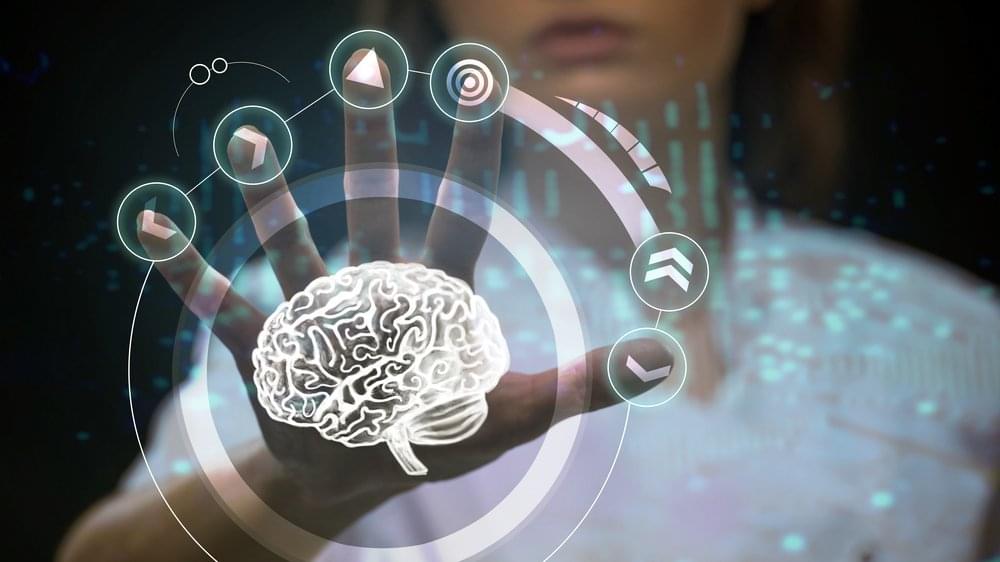Yes, conceivably. And if/when we achieve the levels of technology necessary for simulation, the universe will become our playground.



The universe may seem shapeless because it is so vast, but it does have a form that astronomers can observe. So, what is it shaped like?
Physicists think the universe is flat. Several lines of evidence point to this flat universe: light left over from the Big Bang, the rate of expansion of the universe at different locations, and the way the universe “looks” from different angles, experts told Live Science.

Sea anemones are seemingly immortal animals. They seem to be immune to aging and the negative impacts that humans experience over time. However, the exact reasons for their eternal youth are not completely understood.
The genetic fingerprint of the sea anemone Nematostella vectensis reveals that members of this incredibly ancient animal phylum employ the same gene cascades for neural cell differentiation as more complex organisms. These genes are also in charge of maintaining the balance of all cells in the organism during the anemone’s lifetime. These findings were recently published in the journal Cell Reports by a group of developmental biologists headed by Ulrich Technau of the University of Vienna.
Almost all animal organisms are made up of millions, if not billions, of cells that join together in intricate ways to create specific tissues and organs, which are made up of a range of cell types, such as a variety of neurons and gland cells. However, it is unclear how this critical balance of diverse cell types emerges, how it is regulated, and if the different cell types of different animal organisms have a common origin.
Visit our sponsor, Brilliant: https://brilliant.org/IsaacArthur/
Every day brings us new technological advances, today we’ll explore many of those of such as robotics, automation, rapid delivery, education, medical science, nanotechnology, and more.
Episodes referenced in the Episode:
Power Satellites: https://www.youtube.com/watch?v=eBCbdThIJNE
Fusion Power: https://www.youtube.com/watch?v=ChTJHEdf6yM
Quiet Revolution: https://www.youtube.com/watch?v=jvH-7XX6pkk.
The Santa Claus Machine: https://www.youtube.com/watch?v=FmgYoryG_Ss.
Synthetic Meat: https://www.youtube.com/watch?v=_NULFAItoBs.
Cyborgs: https://www.youtube.com/watch?v=cGYKCTFIZLI
Mind Augmentation: https://www.youtube.com/watch?v=aQpYOVvU17Y
Mind-Machine Interfaces: https://www.youtube.com/watch?v=OCLLzI4R3bc.
Life Extension https://www.youtube.com/watch?v=kKmdc2AuXec.
The Science of Aging: https://www.youtube.com/watch?v=RDpjv2z3dyE
Happily Ever After: https://www.youtube.com/watch?v=0ypfzvQ-Q2w.
Attack of the Drones: https://www.youtube.com/watch?v=6oZCUtgnQkE
Advanced Metamaterials: https://www.youtube.com/watch?v=s0UZ6-oeiIE
Portable Power: https://www.youtube.com/watch?v=ffXqcf48D9Q
The Nuclear Option: https://www.youtube.com/watch?v=3aBOhC1c6m8
Moon: Industrial Complex: https://www.youtube.com/watch?v=y47MMNqKGxE
Machine Rebellion: https://www.youtube.com/watch?v=jHd22kMa0_w.
The Paperclip Maximizer: https://www.youtube.com/watch?v=3mk7NVFz_88
Technological Stagnation: Coming Soon.
Non-Carbon Based Life: Coming Soon.
Visit our Website: http://www.isaacarthur.net.
Support us on Patreon: https://www.patreon.com/IsaacArthur.
SFIA Merchandise available: https://www.signil.com/sfia/
Social Media:
Facebook Group: https://www.facebook.com/groups/1583992725237264/
Reddit: https://www.reddit.com/r/IsaacArthur/
Twitter: https://twitter.com/Isaac_A_Arthur on Twitter and RT our future content.
SFIA Discord Server: https://discord.gg/53GAShE
Listen or Download the audio of this episode from Soundcloud: Episode’s Audio-only version: https://soundcloud.com/isaac-arthur-148927746/new-technologi…-the-cards.
Episode’s Narration-only version: https://soundcloud.com/isaac-arthur-148927746/new-technologi…ation-only.
Credits:

Scientists have discovered proof of a strange particle that strangely enough is also its own antiparticle. Even though it was initially postulated 80 years ago, it now seems that it just could be true.
Scientists from the University of California and Stanford University in California performed the research that was published in the journal Science. A particle might have its own antiparticle, according to a notion initially put out in 1937 by Italian scientist Ettore Majorana (who suddenly vanished in 1938). According to him, certain particles in the fermion class, which includes protons, electrons, and neutrons, ought to have unique antiparticles. These particles later came to be known as Majorana particles.
A particle with the same mass as a normal particle but the opposite electric or magnetic properties is said to be an antiparticle. The positron, for instance, is the antiparticle of the electron. If the two come into contact, they destroy one another.

Art&science.
In “The Art of Memory”- a 1966 Non-fiction book by British historian, Frances Yates, she explained that artificial memory depended upon the recollection of images. Artificial memory was a kind of “inner writing” that the orator reviewed while presenting a speech, observing the places and their contents, the images, and recovering the memories for things (the subject matter) that those images represented.
Yates said: “ordinary things easily slip from the memory while the striking and the novel stay longer in the mind… e ought, then, to set up images that are not many or vague but active; if we assign to them exceptional beauty or singular ugliness; if we ornament some of them, as with crowns or purple cloaks, so that the similitude may be more distinct to us; or if we somehow disfigure them, as by introducing one stained with blood or soiled with mud or smeared with red paint so that its form is more striking, or by assigning certain comic effects to our images, for that, too, will ensure our remembrance of them more readily. The things we easily remember when they are real we likewise remember without difficulty when they are figments.”
In this venture, we attempt to explore memory traces of the Hungarian born painter, photographer, educator, designer Gyorgy Kepes and reflect upon them, bend and transform the shape of things and gather insights beyond vision.



Characterized by just three parameters—mass, spin, and charge—black holes could be considered one of the Universe’s simpler astrophysical objects. Yet, the number of open problems related to how the dark behemoths behave also marks them as one of the most enigmatic. One puzzle is why the plasma around black holes glows so brightly. Now, in 3D simulations of the magnetic fields within this plasma, Benjamin Crinquand of Princeton University and colleagues think they have found the answer: the breaking and reconnecting of magnetic-field lines [1]. The simulations predict that, under certain conditions, magnetic-field instabilities can induce radio-wave hot spots that rotate around the shadow of the black hole. This prediction could be tested by future versions of the Event Horizon Telescope (EHT)—the network of radio dishes used to capture the first black hole images (see Research News: First Image of the Milky Way’s Black Hole).
There are several mechanisms that physicists think could be behind a black hole’s light. One of those is so-called accretion power, where friction-like forces in the infalling plasma heat the plasma, leading to the emission of photons. Models of this process predict constant emission signals, which doesn’t seem to fit with observations of high-intensity bursts of gamma rays from black holes.
Another possibility—and the one that Crinquand and his colleagues consider—is that the energy needed to create this light is extracted from the magnetic field that threads through the plasma. When the lines associated with this field break apart and then reconnect—a process known as magnetic reconnection—magnetic-field energy can convert into plasma-kinetic energy that is then emitted as photons. This model would not replace the accretion one, but act in tandem with it.